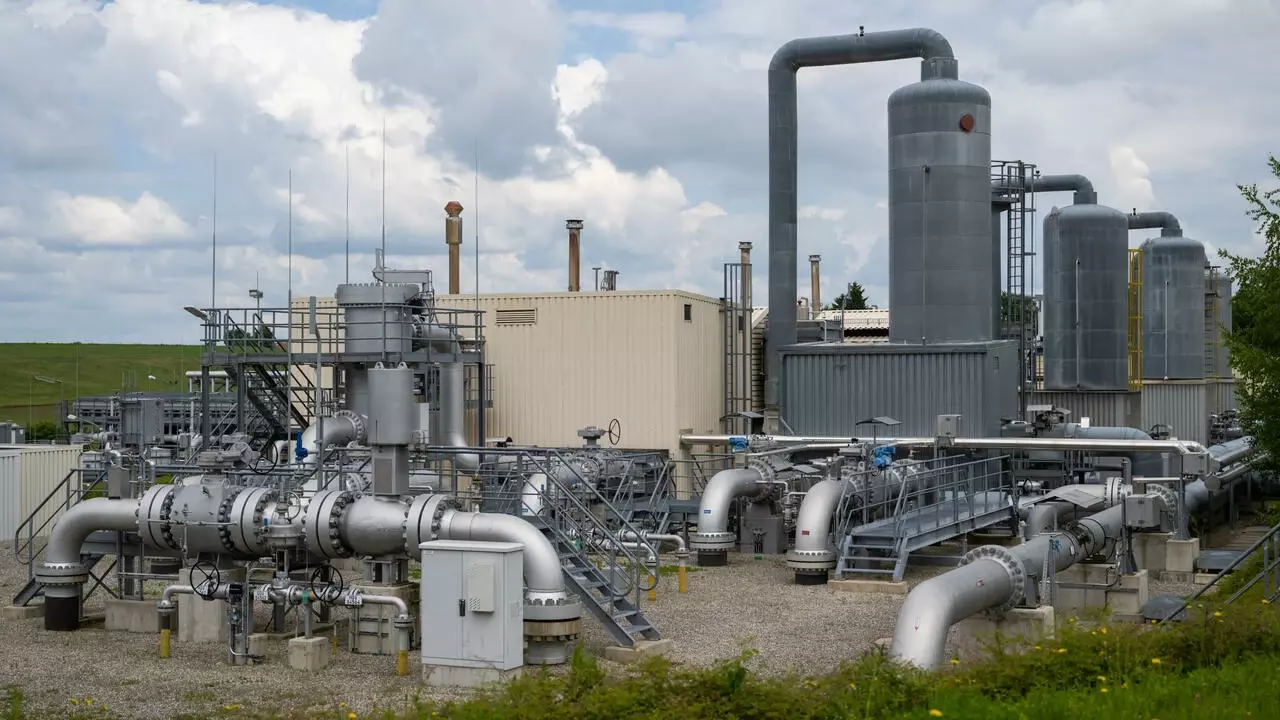
Germany’s race to wean itself off Russian energy and stockpile enough gas before winter is playing out largely hidden from view, some 1,600 meters below ground in the foothills of the Bavarian Alps.
The former Bierwang natural gas field in Unterreit serves as one of Germany’s largest underground gas storage facilities.
Bierwang can hold more than 800 million cubic meters of gas - enough to power the nearby city of Munich for eight months.
Like other storage sites, Bierwang replenishes its stocks between winters, to keep homes heated and Germany’s energy-hungry industry humming during the cold months.
But this year, the stakes are higher than ever.
With the war in Ukraine raging and Moscow increasingly seen as an unreliable supplier, governments across Europe are scrambling to store supplies before Moscow decides to reduce the flow of gas, or close the taps altogether.
Efforts by successive German governments to build closer economic ties with Moscow have left the country hooked on Russian energy imports, a policy now widely seen as misguided.
Fears that a sudden shortage of Russian gas could bring Europe’s biggest economy to its knees recently prompted the German government to adopt legislation requiring all of the nation’s gas reservoirs to be 90 percent full by November.
Altogether, the above and underground sites have enough capacity to cover 25 percent of Germany’s natural gas consumption.
As part of Western sanctions against Moscow, Germany has already agreed to phase out Russian oil and coal. But becoming independent of Russian gas will take longer.
So far, Berlin has managed to reduce the share of its natural gas supplied by Russia from 55 percent before the invasion, to 35 percent now thanks to increased deliveries from countries like Norway and the Netherlands, and through liquefied natural gas contracts (LNG).
Germany’s gas storage sites were 55 percent full on June 14, according to the German Federal Network Agency.
The current fill rate is “better than in previous years, but still not sufficient,” said the agency’s head, Klaus Mueller.
Complicating Germany’s challenge to get ready for winter is the situation at the crucial Rehden gas storage facility in the north.
The German state temporarily took control of the site’s owner, Gazprom Germania, in April. Russia last month cut off supplies to Gazprom Germania in retaliation for Berlin’s move.
The Rehden facility, with a gas storage capacity of four billion cubic metres, was just 7.95 percent full on June 14.